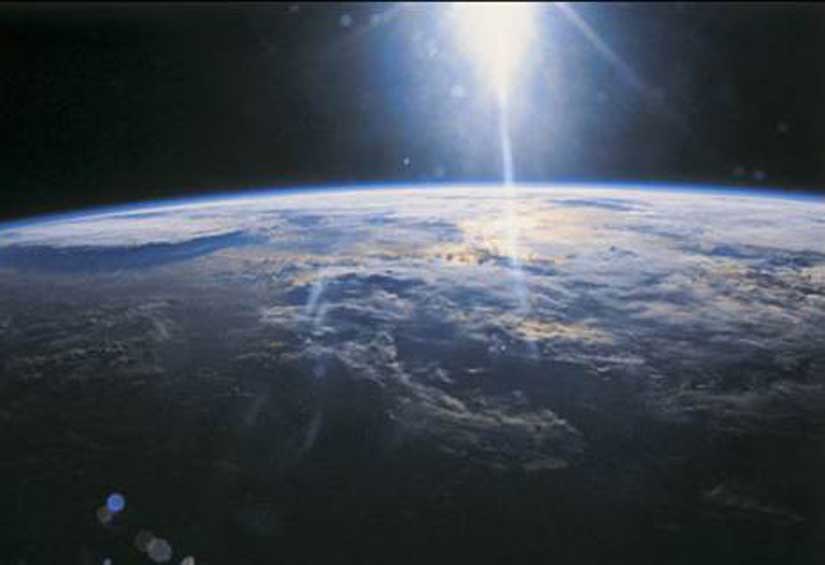It's Not Just Summer, World Keeps Warming

The world's political and environmental leaders gather in Rio de Janeiro tomorrow to assess the state of the planet's health 20 years after the first such gathering in 1992. But if science is any guide, Earth still needs some help.
Several new climate studies reveal various aspects of the same foreboding problem: the atmosphere continues to warm, glaciers continue melting and seas keep rising.
But there is a tiny bit of good news -- the United States and Europe have been able to cut their heat-trapping industrial emissions by switching to less-polluting natural gas, driving fewer miles and of course, sinking into an economic recession where fewer factories are working across much of the globe.
And while North America's mild winter, warm spring and, in some areas, hot June can't be blamed on global climate change, extreme weather events do grab the public's attention. Even though it's not entirely accurate to link climate and weather, perhaps that's not a bad thing, says Gavin Schmidt, a climate researcher at NASA's Goddard Space Science Center in New York.
"People spend a lot of time talking about the weather and love to do so," Schmidt said. "It's an odd thing because as scientists we are using people's interest in weather and weather extremes to talk about something that is connected, but isn't quite the same."
Schmidt said that rather than focusing on extreme blips in weather, it's instead important to look at changes in temperature over the long term. Scientists at the National Oceanic and Atmospheric Administration are doing just that, and reported that the past 12 months from June 2011 to May 2012 were the hottest since record-keeping began in the 1880s. The month of May 2012 was the second-hottest on record (2010 was first). And it looks like 2012 will barge into the top three hottest calendar years on record as well.
At the same time, there is occasional "noise" in the Earth's climate system, explained Ronald Prinn, professor of atmospheric sciences at the Massachusetts Institute of Technology. That means that the linear warming trend could stagger a bit from year-to-year, or decade-to-decade depending on the cooling effects of cloud cover or the ocean's ability to soak up heat.
Get the world’s most fascinating discoveries delivered straight to your inbox.
"If you take a 10-year running average," Prinn told Discovery News. "It's clear that world has been warming for a hundred-plus years."
Some climate skeptics have pointed to the world's forests as a likely carbon "sink" that could suck up heat-trapping carbon dioxide, methane and other such gasses from burning fossil fuels. But a new study by researchers in California found that scenario might not be so simple.
As soil warms up, they found, it releases carbon dioxide made from microbes that decompose dead leaves and fallen trees. About one-third of that release comes from older soil, more than 10 years old.
"While that older material is not going to decompose really fast, there's an awful lot of it," Susan Trumbore, a University of California, Irvine, scientist who led the study, told The Washington Post.
That means that at some point in the future, the world's temperate forests could switch from a carbon sink to a carbon faucet, increasing the vicious cycle of rising CO2 causing even more CO2 to be released.
Another new study finds that Chinese officials may be cooking the books when it comes to carbon emissions.
United Kingdom-based researchers found the gap between what Chinese state authorities report as the nation's industrial emissions and the aggregate of provincial reporting has widened to 1.4 gigatons, that's about 5 percent of the world's entire CO2 emissions budget. Local officials may be padding the books to show more industrial output, while national authorities want to appear more environmentally-friendly to the West.
Either way, the new figures wipe out any gains elsewhere.
"The trends are pretty bad," Schmidt said. "All of the flattening in Europe and the U.S. are being more than matched by increases in China and India."
Despite the recent gloomy news, experts say there are solutions: replacing individual dung-burning stoves in Chinese homes with more efficient centralized power plants; developing more efficient cars, homes and light bulbs in the West; and continuing to shift away from coal as a prime energy source in both the United States and China.
"Nobody wants (another recession) as a solution to the climate issue," Prinn said. "We don't want to be hurting our economies. We need to develop new energy sources."
Unless the world gets a handle on its fossil fuel habit, experts say there's likely to be more extreme events like floods, droughts, heat waves and tropical storms.
"Without climate change we would be seeing extreme heat waves once every 100 years, now it's more on the order of 10 times in 100 years," Schmidt said. "That's going to increase. The dice are loaded, and we're loading them even more."
This story was provided by Discovery News.


